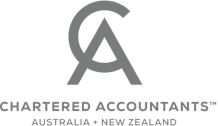Expert Knowledge You Can Trust
COVID-19
Federal Government Stimulus Package Summary
COMMERCIAL LEASES
Tuesday 7 April 2020: Mandatory Commercial Residency Code of Conduct, administered by the States and Territories:
1. Code of Conduct
Effective: immediately
– Purpose of the Code is to impose a set of good faith leasing principles for application to commercial tenancies (including retail, office and industrial) between owners/operators/other landlords and tenants, in circumstances where:
⋅ the tenant is a small-medium sized business (annual turnover of up to $50 million), and
⋅ is an eligible business for the purpose of the Commonwealth Government’s JobKeeper programme
– The overarching details are attached (the juicy bits summarised below) noting all leases and negotiations will be specific to each individual lease and not a “one size fits all approach”:
⋅ Landlords and Tenants to work through lease term adjustments where applicable
⋅ Landlords must not terminate leases due to non-payment
⋅ Landlords must offer proportionate reductions in rent payable, statutory charges and outgoings based on tenants trade reduction
⋅ Rent Waivers must be at least 50% of the total reduction, unless Tenants agree to waive this right.
⋅ Rent Deferrals to be amortised over the lesser of 24 months period or the remaining lease term, unless otherwise agreed.
⋅ No fees, interest or charges to be applied on waivers or deferrals
⋅ Landlords cannot draw upon Bonds and Securities for non-payment of rent
⋅ Landlords to freeze rent increases (except retail)
⋅ Tenants will forfeit any protections provided by the code if they do not remain committed to the terms of their lease
⋅ Tenants should have an opportunity to extend lease terms
⋅ Dispute resolutions to be referred to State mediation services
– Commonwealth Government will be waiving rents for all its small and medium enterprises and not-for-profit tenants within its owned and leased property across Australia.
STIMULUS 4
1. Early Childhood Education and Care Relief Package
Effective: Monday 6 April 2020 (retrospectively to 23rd March 2020)
– Starting Monday 6th April 2020, the former Child Care Rebate & Subsidy System was frozen and replaced with a new system for at least three (3) months until 30 June 2020
– The Government will be paying the Early Childhood Education Centres directly to support the Centres’ revenue stream. The calculation will be based on the children that were enrolled in care during the 2 weeks leading into 2 March 2020 and so long as the Centre remains open and do not charge families for care on-going.
– Families will not be required to fund payment Gaps to Early Childhood Education Centres from 6 April 2020. Furthermore, Gap payments made by families from 25th March 2002 will be refunded.
– An extra 20 absence days will be provided to families in order to maintain a childcare spot during this period should they wish to keep their children at home.
STIMULUS 3
1. JobKeeper
Effective: 30 March 2020 (paid from 1 May 2020 to 27 September 2020)
– Eligible employers (turnover < $1Bn) suffering a least a 30% downturn in revenue will receive a fortnightly subsidy of $1,500 per employee before tax.
– Paid to employers from 1 May 2020 (for the period commencing 30 March 2020), for up to six months, for each eligible employee that was on their books on 1 March 2020 and is retained or continues to be engaged by that employer.
– Eligible employee is defined as over the age of 16, Full or Part time, stood down or a long term casual (employed for at least the previous 12 months as at 1 March 2020). There are special conditions for Australian Visa Holders.
– Employers must elect to participate in the scheme via an application to the ATO, providing supporting information evidencing a downturn in their business revenue, then monthly reporting of the number of eligible employees.
– Once approved, each eligible employee will receive at least $1,500 per fortnight from their employer, before tax, even if their fortnightly pay was normally less than $1,500. Employers will notify employees of the receipt of these respective individual payments.
– Where employees have multiple employers, only one employer will be eligible to receive the payment on the employee’s behalf. The employee will need to notify their primary employer to claim the JobKeeper Payment on their behalf. The claiming of the tax free threshold will in most cases be sufficient notification that an employer is the employee’s primary employer.
– Self-employed individuals will be eligible to receive the JobKeeper Payment where they have suffered the same downturn in revenue.
– Treasury have a very useful FAQs fact sheet which assists with explanations following the enactment of legislation
2. Welfare income support
Effective: 30 March 2020
– The partner income test is temporarily relaxed to ensure that an eligible person can receive the JobSeeker Payment, and associated Coronavirus Supplement, providing their partner earns less than $3,068 per fortnight, i.e. around $79,762 per annum
STIMULUS 2
1. Cash flow assistance for SMEs
Effective: 21st April 2020
– Eligible small and medium-sized employer businesses (SMEs) including not-for-profits, will receive a Cashflow Boost of up to $100,000 in total.
– First component being a minimum $10,000 up to a maximum of $50,000 to provide cash flow support to businesses with a turnover of less than $50m that employ staff, between 1 January 2020 and 30 June 2020.
– recipients will receive a credit to the value of 100% of their PAYG Withheld reported on their BAS or IAS, effective from 21st April for monthly statements and 28 April 2020 for quarterly statements. Refunds to then be paid within 14 days from the due date.
– Second component provides a total credit equal to the first component received above, but split into either 2 or 4 equal credits (depending on the business activity statement reporting cycle) and applied for use in the respective June, July, August and September 2020 activity statement reporting periods.
– Both component credits and payments will be tax free, being a minimum $20,000 and capped at a maximum of $100,000 in total.
– 50% of any unsecured loans of up to $250,000 for a term of up to 3 years.
– Repayments will not be required for the first six (6) month period starting 1 April 2020. If you are running a business struggling to remain viable during these difficult times, consider whether these borrowings will make the recovery process more difficult, given the compounding effect of higher interest rates and the eventual repayments required
2. Welfare income support
Effective: 22nd March 2020
– $550 extra fortnightly payments for the next six (6) months to existing and new recipients of the JobSeeker Payment, Youth Allowance jobseeker, Parenting Payment, Farm Household Allowance and Special Benefit
– Second round of $750 payments to Veterans and Social Security recipients to be paid from 13 July 2020
– Reduction of deeming rates for Superannuation pension support calculations
3. Other support
Effective: 22nd March 2020
– Tax Free Early Release of Superannuation up to $20,000 ($10,000 in each of 2020 and 2021 financial years up to 30 Sept 2020) for eligible applicants via individuals MyGov accounts.
– Reduction of Superannuation Account based minimum draw down pension amounts by 50% for 2020 and 2021 financial years
– Debtor collection threshold increase from $2,000 to $20,000 for six (6) months for which creditors can issue a statutory demand on a company and similarly allowable response times
– Temporary relief for directors from any personal liability for trading while insolvent
STIMULUS 1
Thursday 12 March 2020: Specific legislation enacted
1. Business investment initiatives
Effective: Thursday 12 March 2020
– Instant asset write-off threshold will be increased from $30,000 to $150,000 and available to businesses with aggregated annual turnover less than $500m until 30 June 2020
– 50% investment incentive (through to 30 June 2021) will be provided to support business investment by accelerating depreciation deductions. Businesses with a turnover of less than $500m will be able to deduct 50% of the asset cost in the year of purchase (generally those assets over $150,000)
2. Cash flow assistance for SMEs
Effective: Thursday 2 April 2020
– Apprentice and Trainee Support with be available to Small business employers (defined as less than 20 employees) for a wage subsidy of 50% of the apprentice’s or trainee’s wage for up to 9 months from 1 January 2020 to 30 September 2020.
– Where a small business is not able to retain an apprentice, the subsidy will be available to a new employer that employs that apprentice
– Payment of up to a maximum of $21,000 per eligible apprentice or trainee
3. Pensioner payments
Effective: Tuesday 31 March 2020
– First $750 stimulus payments will be made to pensioners, social security, veteran and other income support recipients and eligible concession card holders from 31 March 2020 on a progressive basis. The payment will be tax free and not count as income for Social Security, Farm Household Allowance and Veteran payments. Limited to 1 payment per eligible recipient
4. Support for sectors, regions and communities
Effective: Thursday 12 March 2020 (on application)
– Deferred tax payments for up to four (4) months will be provided in similar fashion to those provided to affected bushfire taxpayers on a case by case basis when requested
– All businesses on a quarterly reporting cycle able to opt into monthly GST reporting in order to get quicker access to GST refunds (minimum 12 month period)
– Businesses to vary Pay As You Go (PAYG) instalment amounts to zero for the March 2020 quarter. Businesses that vary their PAYG instalment to zero can also claim a refund for any instalments made for the September 2019 and December 2019 quarters
– Remitting interest and penalties incurred on or after 23 January 2020 that have been applied to tax liabilities
– Should you require urgent assistance, please contact us or the ATO Emergency Support Infoline 1800 806 218.








